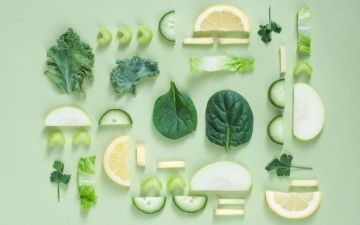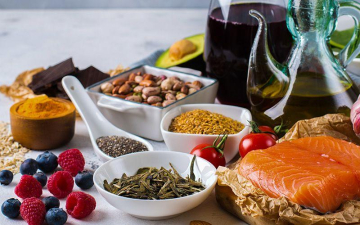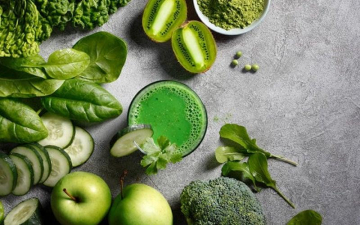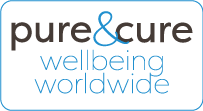Buchinger Detox
Insiders tips



Discover all our Buchinger Fast holidays
What is a Buchinger fast
Buchinger Wilhelmi therapeutic fasting is a procedure whereby a person goes without food for a certain length of time, living mainly on their fat reserves instead. This stimulates autophagy and detox enzymes, resulting in a deep cleansing of the cells and tissue. At the same time, fasting reduces all inflammatory processes, alleviates pain and improves mobility. The success of fasting depends to a large extent on the four-day period at the end of the fast, you gradually start to eat normal meals again. During this process, dormant stem cells are activated and new structures built up. It is a period of regeneration (also called rejuvenation) with tremendous therapeutic potential. For Buchinger Wilhelmi therapeutic fasting to take full effect, a stay should last at least 10 days.
How does a Buchinger fast work
Buchinger fast, also known as the Buchinger fasting method, is a form of therapeutic fasting that involves drinking only liquids such as tea, broth, and juice for a period of time, typically 3-14 days. Buchinger therapeutic fasting is a low-calorific drinking diet whereby approximately 200–300 kilocalories are consumed per day. During the therapeutic fasting, you will receive a nutrition-rich organic vegetable broth made to the original recipe, supplemented by fruit and vegetables juices, tea and mineral water. The goal of the Buchinger fast is to allow the body to rest, cleanse and detoxify.
What is a detox
Detox, short for detoxification, is the process that aims to rid the body of toxins and harmful substances. It involves making lifestyle changes and adopting specific practices to support the body's natural detoxification systems.
Why Detox?
The primary goal of a detox is to eliminate accumulated toxins from the body, which may come from various sources such as environmental pollutants, processed foods, alcohol, drugs, medication or stress. By reducing exposure to toxins and supporting the body's natural detoxification mechanisms, a detox is believed to help restore balance, enhance vitality and promote overall health. A detox regimen encompasses various components such as detoxifying foods (juices, soups, salads, broths, and other light detox meals), yoga, meditation, walks, nutritional workshops, sauna sessions, massages (optional), and more. The rationale behind this approach is to give the digestive system a break from solid foods and flood the body with easily digestible nutrients, antioxidants and enzymes found in vegetables and fruit.
Why is a cleanse once in a while so beneficial?
The body has its natural detoxification mechanisms through organs like the liver, kidneys and lymphatic system. These organs work continuously to eliminate waste and toxins from the body. Doing a cleanse or a detox may enhance the body's natural detoxification processes. It gives the body a nutrient boost as detox meals and juices can provide a concentrated source of vitamins, minerals and phytonutrients. A detox will reduce the digestive load as detox meals are easier to digest than processed or solid foods, allowing the digestive system to rest and redirect its energy towards the detoxification process. Detox meals and detox juices can help keep the body hydrated. Some people use a cleanse as a kickstart to healthier eating habits, with the intention of continuing a more balanced diet after the cleanse.
It is important to say that a detox is not a long-term solution. Extreme or prolonged juice cleanses may lead to nutrient deficiencies and may not be suitable for everyone, especially those with certain medical conditions or dietary restrictions.
The Benefits of a detox or cleanse
We listed some of the advantages of a detox
- Elimination of Toxins: Detox holidays typically involve a specialized diet, fasting and cleansing practices that help flush out toxins from the body. This process can lead to improved digestion and better nutrient absorption.
- Increased Energy: As toxins are eliminated, and the body is nourished with nutrient-dense foods, energy levels tend to increase. You will feel more vibrant and alert during and after a detox holiday.
- Weight Loss: Detox programs often result in weight loss, as they focus on eliminating processed foods, sugar and unhealthy fats.The weight loss is temporary as it is mainly water and toxines you lose, instead of fat.
- Improved Skin Health: Detoxing can lead to clearer, glowing skin, as it helps eliminate impurities.
- Enhanced Mental Clarity: Detox holidays often include mindfulness practices such as meditation and yoga, which can help reduce stress and improve mental clarity and focus.
- Boosted Immune System: A healthy detox can strengthen the immune system by promoting the intake of immune-boosting foods and reducing the load on your organs.
- Reduced Inflammation: Many detox programs focus on anti-inflammatory foods and practices, which can help alleviate chronic inflammation.
- Rejuvenation and Relaxation: Detox retreats often include spa treatments, massages and other relaxation therapies.
- Healthy Habits and lifestyle: Detox holidays can inspire you to adopt healthier lifestyle habits, including mindful eating, regular exercise and stress management techniques.
Various ways to detox - which suits you?
There are various types of detox holidays or retreats that you can choose based on your preferences, goals and health needs. We listed some detox retreats, each with their own strength:
- Juice Cleanse. Consuming only fresh fruit and vegetable juices for a certain period. The aim is to give the digestive system a break while flooding the body with nutrients. Juices are made of vegetables and fruits that are known to help eliminate toxins and cleanse the gut, such as spinach, carrots, lemon or celery, just to name some. To support the detoxification process, nutritional supplements can be added.
- Detox with light meals. During this mild detox programme, you’ll eat light, fresh food prepared with ingredients that promote cleansing within the body such as soups, salads, rice and other easy to digest foods.
- Mayr Detox. The Mayr detox, based on the principles of Austrian physician Dr. Franz Xaver Mayr, is all about the guts and the digestive system, including support of the liver function. It involves a specialized diet that emphasizes slow eating, thorough chewing and simple, easily digestible foods. It is combined with abdominal treatments, such as abdominal massages or castor oil compresses, to stimulate the gut and aid detoxification.
- Buchinger Fast.The Buchinger fast, also known as the Buchinger method, is a therapeutic fasting approach developed by Dr. Otto Buchinger. It involves abstaining from solid food and consuming only vegetable broths, herbal teas and fruit juices for a specific period. The fast aims to promote detoxification, rest the digestive system, and activate the body's self-healing processes.
- Ayurvedic Detox. Ayurvedic detox focuses on balancing the body's doshas through a combination of specialized diets, herbal treatments, and yoga practices.
- Raw Food Detox. Raw food detox retreats focus on consuming uncooked, plant-based foods, such as fruit, vegetables, nuts and seeds. These are nutrient-rich meals that are easy on the digestive system. In their raw state, these foods contain nutrients, antioxidants, vitamins and minerals that normally - through the heating process - get lost. These nutrients protect your body from toxins and support cell renewal. A Raw food detox is an ideal start to a healthy lifestyle.
Which elements and therapies could be included
To support the detoxification process during a detox holiday, various activities and treatments can be incorporated to enhance the cleansing and rejuvenating process:
Therapies and treatments
- Massage Therapy: Massage can stimulate the lymphatic system and circulation, facilitating the removal of toxins from the body.
- Colon Hydrotherapy: Colon hydrotherapy or colon cleansing treatments can help remove waste and toxins from the colon.
- Acupuncture: Acupuncture may aid in balancing the body's energy and supporting detoxification.
- Spa Treatments: Additional spa treatments like body scrubs, facials or body wraps with algae.
Supplements
- Herbal Supplements: Some detox retreats may offer herbal supplements or teas that support liver function.
Light exercise
- Yoga and Meditation: Practicing yoga and meditation can promote relaxation, reduce stress, and support mental and emotional detoxification.
- Nature Walks and Hiking: Spending time in nature and engaging in physical activities like hiking can promote overall well-being and help clear the mind.
Other activities
- Nutrition Workshops: Educational workshops on nutrition and healthy eating which will help to continue healthy habits post-retreat.
- Sauna or Steam Room Sessions: Saunas and steam rooms help in sweating, which aids in eliminating toxins through the skin.
- Digital Detox: Disconnect from electronic devices during the retreat can support your mental detoxification and reduce stress.
- Mindfulness Practices: Including mindfulness exercises and stress-reduction techniques can further support the body's detoxification process.
Methods of colon hydrotherapy (or colon cleanse):
- Colon Hydrotherapy (Colonic Irrigation): This involves the introduction of warm water into the colon through a tube inserted into the rectum. The water helps to soften and flush out waste material and toxins from the colon. The procedure is typically performed by a trained therapist.
- Enema: An enema involves introducing a liquid (usually water or a saline solution) into the rectum using a tube or nozzle. Enemas are often used to relieve constipation or prepare for medical procedures.
- Herbal Colon Cleanse: This ayurveda approach involves using herbal supplements or teas to promote bowel movements and cleanse the colon. Some herbal blends are designed to stimulate digestion and eliminate waste.
- Coffee Enema: Some detox programs include coffee enemas, where a coffee solution is introduced into the colon. Advocates claim it helps stimulate bile production and liver detoxification.
When is a Detox not recommended
Detoxing may not be advisable for you when you have underlying health issues such as diabetes, heart problems, kidney disorders, or during pregnancy. Additionally, if you are on specific medication or you have a history of eating disorders, detoxing could pose risks. Prior to selecting a detox holiday, it is crucial to take into account your health status, dietary inclinations and goals. If you have any existing medical conditions, it is recommended to seek advice from your GP or healthcare expert.
Ask our team
Our team of well-being travel experts is dedicated to providing guidance and assisting you in discovering your ideal detox holiday destination. We are here to offer advice, ensuring that your journey towards well-being aligns perfectly with your preferences and aspirations.

 BE
BE NL
NL







